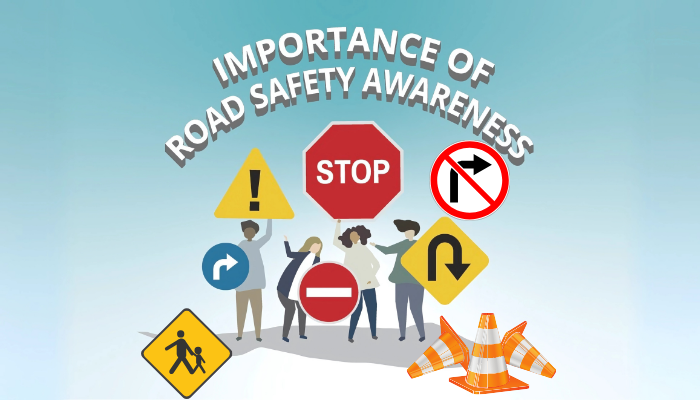Inclusive Mobility: Supporting Disabled Individuals in Passing the Driving Theory Test is an essential topic that needs attention to ensure equal opportunities for all. Learning to drive can significantly enhance independence, employability, and social inclusion. However, disabled individuals often face unique challenges when preparing for their driving theory test. With the right resources, strategies, and accessibility measures, they can overcome these barriers and succeed. This blog, the Jeju Unicorn, aims to provide valuable insights into inclusive mobility and support systems that can help disabled individuals in their journey towards obtaining a driving license.

Understanding the Challenges Faced by Disabled Individuals
Driving is an essential skill, but disabled individuals often encounter various obstacles when preparing for the theory test. These challenges include:
- Physical Barriers – Limited accessibility to test centers and lack of suitable accommodations.
- Cognitive Difficulties – Struggles with reading, memory, or comprehension can hinder test preparation.
- Visual and Auditory Impairments – Difficulty accessing study materials in suitable formats.
- Anxiety and Confidence Issues – Increased stress levels can affect test performance.
Importance of Inclusive Mobility in Driving Education
Inclusive mobility ensures that everyone, regardless of their abilities, can prepare for and pass the driving theory test. It includes:
- Accessible Test Centers – Locations that provide ramps, lifts, and other necessary facilities.
- Specialized Study Materials – Resources designed to cater to various disabilities.
- Support Systems – Assistance through personalized coaching and online tools.
- Flexible Testing Options – Extended time, personal assistance, or alternative test formats.
Effective Strategies to Support Disabled Individuals
1. Providing Accessible Study Materials
Disabled individuals benefit from study materials designed to accommodate their specific needs. These include:
- Audiobooks and Podcasts – For visually impaired learners.
- Large Print and Braille Materials – Helpful for individuals with vision impairments.
- Interactive Learning Apps – Engaging and adaptable for different cognitive abilities.
- Simplified Language Guides – Beneficial for those with learning difficulties.
2. Implementing Technological Solutions
Technology plays a crucial role in making learning accessible. Some of the best innovations include:
| Technology | Benefits |
|---|---|
| Text-to-Speech Software | Helps visually impaired individuals by reading questions aloud |
| Speech Recognition | Allows those with mobility impairments to respond verbally |
| Adaptive Keyboards & Mice | Enhances usability for individuals with limited hand movement |
| Screen Magnifiers | Assists those with low vision in reading content |
3. Special Accommodations During the Test
The driving theory test should be flexible and accommodating. Options available include:
- Extended Time – Allows for a comfortable pace of answering questions.
- Separate Testing Rooms – Reduces distractions and creates a stress-free environment.
- Personal Assistants – Helps those who require physical assistance.
- Sign Language Interpreters – Ensures accessibility for hearing-impaired candidates.
Steps to Take When Preparing for the Driving Theory Test
1. Understanding the Test Format
The driving theory test consists of multiple-choice questions and a hazard perception test. Understanding the structure helps in effective preparation.
2. Using Personalized Learning Plans
A step-by-step learning plan can significantly boost confidence and efficiency:
- Assess Strengths & Weaknesses – Identify areas that require additional focus.
- Create a Study Schedule – Allocate dedicated time for learning.
- Engage in Interactive Learning – Utilize videos, quizzes, and simulations.
- Take Mock Tests – Build familiarity and reduce anxiety.
- Seek Guidance & Support – Enroll in support groups or coaching sessions.
Resources Available for Disabled Learners
Government & Institutional Support
Governments and driving agencies offer various accommodations, such as:
- Disability-Friendly Test Centers – Equipped with necessary facilities.
- Financial Assistance – Discounts or reimbursements for accessible learning materials.
- Professional Guidance – Support from specialized driving instructors.
Online Platforms and Mobile Apps
The internet provides numerous resources to support disabled learners, including:
| Resource Type | Examples |
| E-Learning Platforms | Theory Test Pro, DVSA Learning Zone |
| Accessible Driving Schools | Local organizations offering adapted lessons |
| Assistive Technology Apps | Seeing AI, Be My Eyes |
| Community Forums | Support groups for discussing challenges and solutions |
Encouraging a Positive Mindset for Success
A positive mindset is essential for success. Strategies include:
- Practicing Stress Management Techniques – Deep breathing, meditation, and relaxation exercises.
- Staying Motivated – Celebrating small achievements to maintain momentum.
- Seeking Peer Support – Connecting with individuals facing similar challenges.
- Building Confidence – Regular practice sessions help boost self-esteem.
Conclusion
Inclusive Mobility: Supporting Disabled Individuals in Passing the Driving Theory Test is vital for fostering independence and equal opportunities. By providing accessible resources, implementing supportive strategies, and ensuring special accommodations, disabled individuals can successfully pass their driving theory test. With the right guidance, technological advancements, and inclusive policies, achieving this goal becomes more manageable. This blog serves as the Jeju Unicorn on inclusive mobility, helping disabled individuals overcome challenges and take confident steps toward driving success.